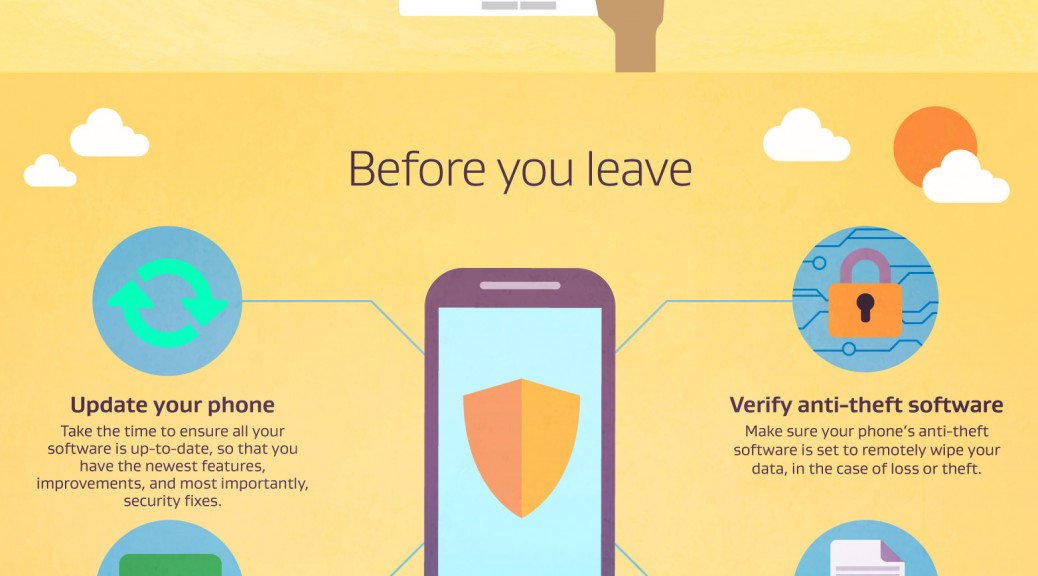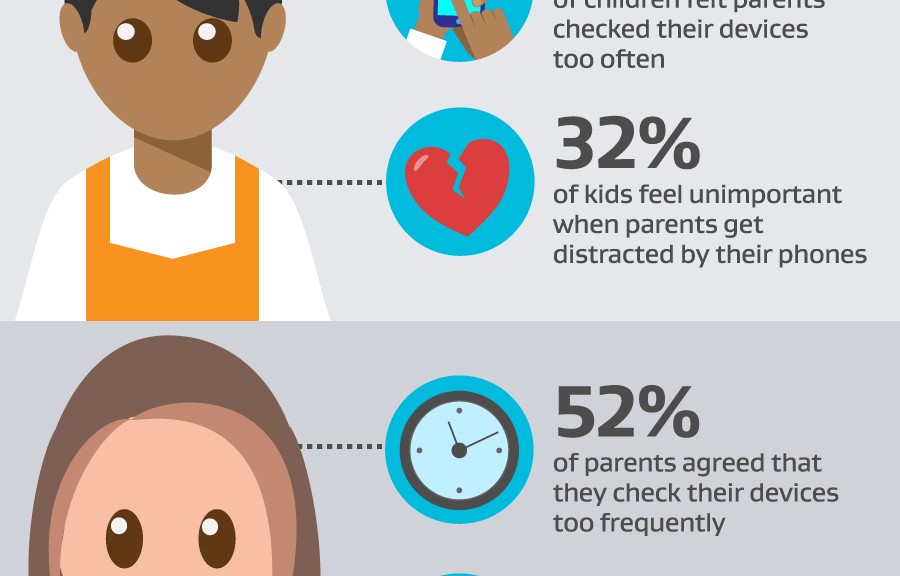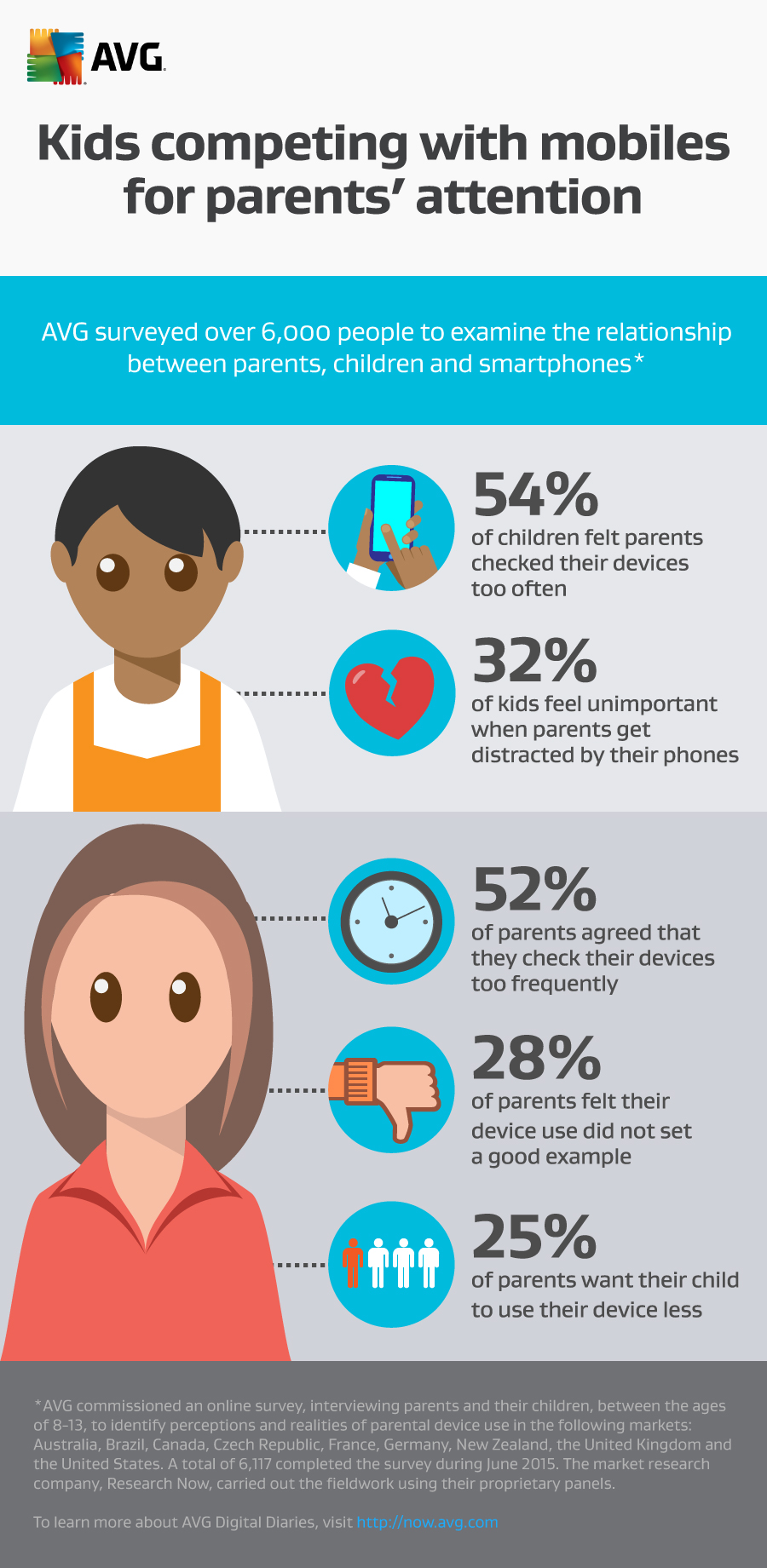LONDON, 3 JULY, 2015 – In today’s ever-connected world, online dangers can present themselves around every virtual corner. As the third annual Child Internet Safety Summit commences, AVG® Technologies N.V. (NYSE: AVG), the online security company™ for more than 200 million monthly active users, has released new research revealing the extent of children’s exposure to inappropriate content online, and the conflicting views and concerns of their parents.
The findings reveal that more than a third (35%) of UK children have encountered dangers online while at home – a figure that rises to 40% among tech-savvy ‘tweens’.
Despite this reality, a quarter (24%) of all parents have no plans to educate their children about online risks – and this is particularly the case for those with older children, rising to one in four (39%) parents with 10-12 year olds, and two thirds (62%) of parents with 13-16 year olds.
When asked why, two in five (44%) parents believe their child is sensible enough to know what to avoid online, 22% think it will just be too awkward to discuss, and one in seven (14%) simply don’t think it’s necessary.
These startling findings highlight the growing need to educate both children and parents about the threats that lurk online.
Tony Anscombe, Senior Security Evangelist at AVG Technologies, explains: “No matter how tech-savvy today’s children are, nor how ‘technophobic’ their parents think they are, it’s important not to forget that they are still just kids. As with any other life lessons, children look to parents for guidance; and in turn, it is their responsibility to teach them good from bad.
The findings of this research prove exactly that. By assuming children know best, simply because they have grown up around technology, parents are opening up their children to online dangers – and a significant amount are falling victim to them in some form. It’s only through parents educating themselves and their children about these dangers that we’ll start to reduce the number of children exposed to inappropriate content online.”
The study also sheds light on where parents see their child’s digital habits being influenced. The vast majority (88%) say school friends and teachers play the biggest combined role, while over a quarter (26%) say friends from outside of school are also key influencers.
With 40% of parents most concerned for their child’s online safety when they are away from home, these findings highlight how they could be overlooking the online dangers within the home. While parents are rightly conscious of letting their children surf the web outside of the family environment, the findings suggest they may be too quick to shift the blame, for children encountering dangers online, onto these outside influencers, rather than shoulder it themselves.
Julia Bradbury, TV presenter and mother of three, comments: “As a parent, I’m increasingly conscious of keeping my children safe from all the risks they face – whether it’s crossing the road or playing with apps on my phone. Admittedly, it’s a lot easier to see the damage from a scrape on the knee, but – as the Internet plays a bigger role in their lives – we need to understand that virtual bumps and bruises can be just as painful.
All three of my children will be growing up around technology – they simply won’t know anything different – so it’s my job, as a mother, to make sure they know right from wrong (on-and-offline), so they can make the most of their connected world. Having those ‘awkward’ conversations is often part of parenting, and if they protect your child in the long run, then it’s something worth blushing for!”
Activity at the Child Internet Safety Summit 2015 is part of AVG Technologies’ SmartUser mission – a growing movement based on the belief that everyone on the Internet is responsible for making it a better place. The objective is to make the next two billion users of the mobile Internet Smart Users, through education, to help them make informed choices about their own security and privacy — all from the first moment they start using a connected device. The SmartUser initiative works on the basis that if you would teach a child how to safely cross the road, there is a similar duty to teach them how to responsibly use the Internet, as well.
– ENDS –
About the Research / Methodology:
AVG commissioned an online survey, interviewing 2,200 UK adult parents (aged 18-65) with one or more children aged 4-16 years old. The market research company, Vanson Bourne, carried out the fieldwork between 4th-12th June 2015 using their propriety panels.



![]()
![]()




